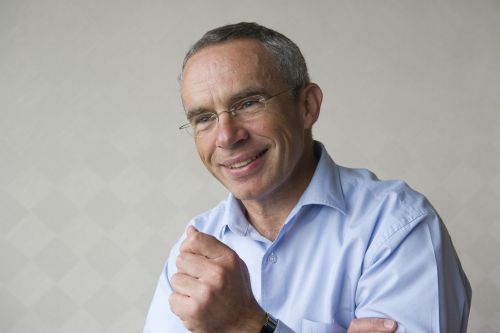
JSE-listed cellphone giant Vodacom may abandon plans to bid for wireless broadband spectrum in the 2,6GHz frequency band if the rules of engagement are not changed, TechCentral has learnt exclusively.
Group CEO Pieter Uys says the demands made by the Independent Communications Authority of SA (Icasa) on potential bidders are “unrealistic”. He says Vodacom will decide within the next four weeks — by 15 July at the latest — whether it will participate in the auction or walk away.
If Vodacom and the other mobile operators walk away from the bidding, it could put Icasa in a bind as few other industry players have the financial wherewithal to build networks of national scope.
Mobile operators want the 2,6GHz spectrum so they can build the next-generation of cellular networks using a technology known as “long-term evolution”, or LTE. The operators need the spectrum to cater for growing demand for broadband data on their networks.
But Uys says Vodacom may elect not to take part in the auction, waiting instead for spectrum in the so-called “digital dividend” band, which will be freed up over the next few years as the country migrates from analogue to digital terrestrial television. The digital dividend spectrum — around 800MHz — is better suited to delivering wireless broadband over longer distances than the 2,6GHz technology.
To take part in the 2,6GHz spectrum auction, Icasa requires bidders to cover 50% of the country’s population within two years of them receiving the spectrum.
“Building a network using LTE, using whatever frequency, that covers 50% of the country within two years is completely unrealistic,” Uys says. “It is not possible. The business plan will not work.”
Uys says it has taken Vodacom nearly five years to build a 3G network of 3 500 base stations that barely covers 50% of the country’s population.
Even if Vodacom decides to bid for the spectrum, the problems don’t end there, Uys says. Because Icasa requires bidders to have 30% of their equity in the hands of historically disadvantaged individuals (HDIs), Vodacom will have to create an entirely separate company and build a separate network. No SA mobile operator meets the HDI requirement.
Some analysts have suggested the mobile operators will simply create special purpose vehicles to bid for the spectrum, but Uys says this isn’t possible as it could be construed as “window-dressing”, or fronting.
Also, building a network at 2,6GHz is more expensive than building networks at lower frequencies. Even compared to first-generation 3G networks, which utilise 2,1GHz, successful bidders will have to erect about 40% more base stations at 2,6GHz to offer the same coverage, Uys says.
He says Icasa must ensure that the spectrum is given to the incumbent operators, which are “able to make a big impact quickly”.
Uys has set a deadline of mid-July for Vodacom to make a decision on the 2,6GHz auction.
“If I get to 15 July, and the numbers don’t make sense, I will not apply for [the spectrum],” he says. “I can’t build a network for the sake of building a network [and] if it has to be standalone company with a 50% coverage requirement then I won’t apply.” — Duncan McLeod, TechCentral
- Subscribe to our free daily newsletter
- Follow us on Twitter or on Facebook




